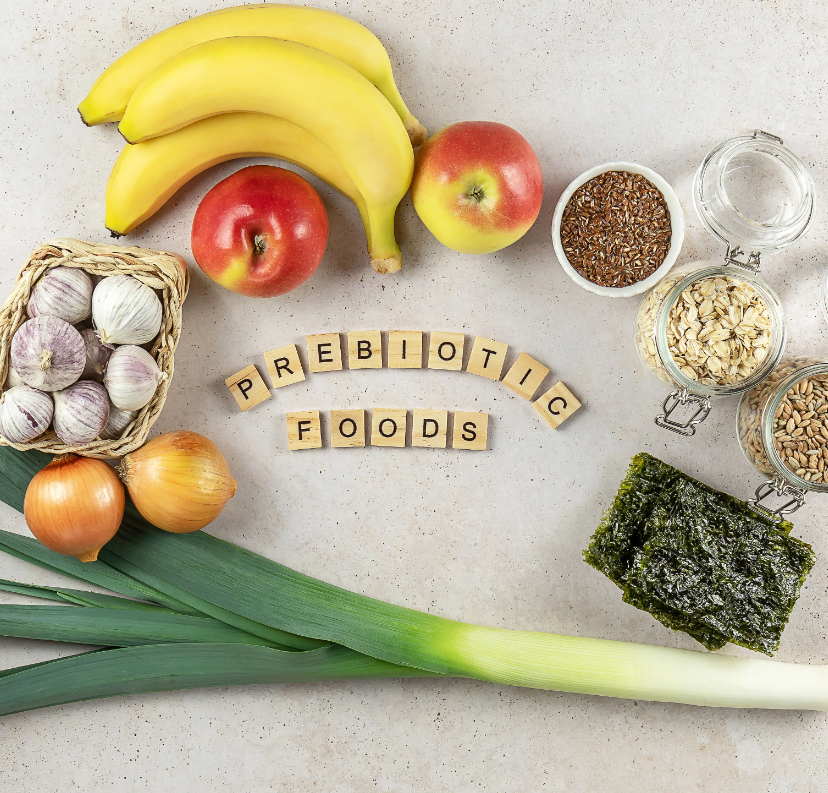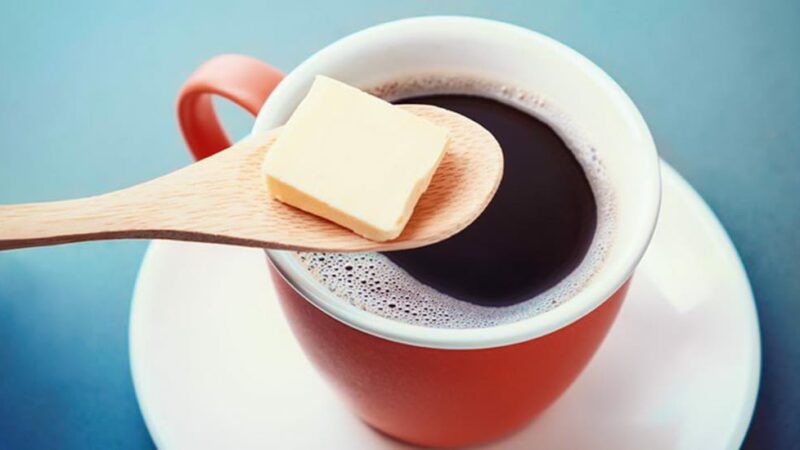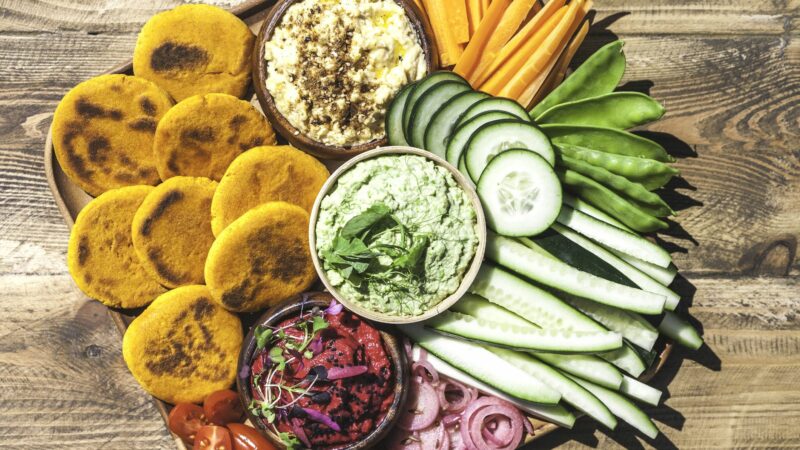List of Best Prebiotic Foods to Include in Your Diet

Prebiotic Foods – Maintaining a healthy gut is essential for overall well-being. The gut plays a significant role in our immune system and digestion and influences our mental health. Prebiotics are a crucial component of this gut health equation.
Prebiotics are non-digestible fibres that promote the growth and activity of beneficial bacteria in the gut. Including prebiotic foods in your diet can help you achieve a healthier and more balanced gut microbiome. This blog’ll explore the top prebiotic foods you should consider adding to your diet.
List Of Prebiotic Foods
Chicory Root:
Inulin helps stimulate the growth of beneficial gut bacteria, aiding digestion and overall gut health.
It can be used as a coffee substitute or as a dietary supplement to recipes.
Dandelion Greens:
Dandelion greens are packed with vitamins and minerals and high in inulin.
They can be used in salads, smoothies, or as a side dish for a prebiotic boost.
Garlic:
Garlic is not only a flavorful addition to many dishes but also an excellent source of inulin.
Its prebiotic properties support the growth of beneficial gut bacteria.
Onions:
Onions contain inulin and fructooligosaccharides (FOS), both prebiotic fibers.
They are versatile and can be used in various savory dishes.
Leeks:
Leeks are part of the onion family and also contain inulin and FOS.
They add a unique flavour to soups, salads, and stir-fries.
Asparagus:
Asparagus is rich in inulin and helps nourish your gut microbiota.
It’s a delicious addition to various recipes, from roasted dishes to quiches.
Jerusalem Artichoke:
Jerusalem artichoke contains inulin, making it a great prebiotic choice.
It can be roasted, mashed, or added to salads for a distinctive flavor and prebiotic benefits.
Bananas:
Unripe bananas are high in resistant starch, a type of prebiotic fiber.
They can be included in smoothies or enjoyed as a snack with a bit of green on the peel.
Barley:
Barley is a whole grain that contains beta-glucans, which have prebiotic effects.
It can be used in soups, stews, or as a side dish.
Oats:
Oats are a source of beta-glucans and can help support the growth of beneficial gut bacteria.
Start your day with a bowl of oatmeal or include oats in baking recipes.
Apples:
Apples contain pectin, a prebiotic fiber that can enhance gut health.
Enjoy apples as a snack, in salads, or in smoothies.
Flaxseeds:
Flaxseeds provide a good dose of soluble and insoluble fiber, promoting digestive health.
Sprinkle ground flaxseeds on yoghurt cereal or add them to smoothies.
Chia Seeds:
Chia seeds are high in soluble fiber, which supports a healthy gut.
They can be used in puddings, oatmeal, or as a topping for salads.
Artichokes:
Artichokes are a fantastic inulin source, making them a top choice for promoting gut health.
They can be steamed, grilled, or added to salads and dips.
Jicama:
Jicama is a root vegetable containing inulin known for its crisp, refreshing taste.
You can slice jicama into sticks for a crunchy snack, add it to salads, or use it in slaws.
Green Plantains:
Green plantains are rich in resistant starch, which acts as a prebiotic.
They can be fried, baked, or mashed as a side dish.
Wheat Bran:
Wheat bran is high in insoluble fiber, which supports bowel regularity and gut health.
You can add wheat bran to cereals, baked goods, or smoothies.
Cocoa:
Yes, that’s right! Unsweetened cocoa powder contains flavonoids that can support the growth of beneficial gut bacteria.
Use it to make a delicious, rich hot cocoa or add it to smoothies.
Seaweed:
Various types of seaweed, such as nori and wakame, contain fiber that acts as a prebiotic.
Incorporate seaweed in salads, sushi, or as a flavorful garnish.
Mushrooms:
Mushrooms are not only nutritious but also contain prebiotic fibers like beta-glucans.
Use mushrooms in stir-fries soups, or sauté them as a side dish.
Fennel:
Fennel is a crunchy, aromatic vegetable that contains prebiotic fiber.
Slice it thinly for salads, roast it, or use it in soups and stews.
Honey:
Raw honey contains oligosaccharides, which act as prebiotics.
Use it as a natural sweetener in tea, yogurt, or as a topping for whole-grain toast.
Carrots:
Carrots contain fiber, including inulin, which can benefit your gut health.
Enjoy them as a snack, in salads, or as an ingredient in various dishes.
Lentils:
Lentils are legumes that provide a good amount of prebiotic fiber.
Use them in soups, stews, and as a base for salads.
Chicory Greens:
Chicory greens, like radicchio and endive, are excellent sources of inulin.
They can be used in salads, or as a flavorful bed for grilled meats.
Conclusion
A diet rich in prebiotic foods can help create a thriving gut microbiome, which, in turn, can positively impact your overall health. Incorporating the prebiotic foods listed above into your meals can support the growth of beneficial bacteria, improve digestion, and enhance your immune system.
Remember to maintain a balanced diet and consult with a healthcare professional if you have specific dietary concerns or medical conditions. Your gut health is crucial, so feed it well with these prebiotic superfoods.
Read More – Discover the Delightful World of Zero-Calorie Foods
FAQs:
1. What are prebiotic foods, and how do they differ from probiotics?
- Prebiotic foods are non-digestible fibers that provide nourishment for beneficial gut bacteria. They help these good bacteria grow and thrive in your digestive system. On the other hand, probiotics are live microorganisms (usually beneficial bacteria) that you consume to populate your gut with healthy microbes directly.
2. Why are prebiotic foods important for gut health?
- Prebiotic foods are essential because they promote the growth and activity of beneficial bacteria in your gut, which can improve digestion, strengthen your immune system, and support overall gut health.
3. Can prebiotic foods help with weight management?
- Prebiotic foods may aid in weight management indirectly by promoting satiety and improving insulin sensitivity. They can help you feel full, reducing the likelihood of overeating.
4. Are there any side effects of consuming prebiotic foods?
- In general, prebiotic foods are safe to consume, but some people may experience gas or bloating when they increase their intake of prebiotic fibers. Gradually incorporating these foods into your diet can help your gut adapt.
5. How much prebiotic fiber should I include in my diet?
- There is no one-size-fits-all answer, as individual needs vary. Aim to consume a variety of prebiotic foods regularly and listen to your body’s response. Start with smaller amounts and gradually increase your intake to avoid digestive discomfort.
Read More – What Is Masago? Benefits and Downsides of Capelin Fish Roe





